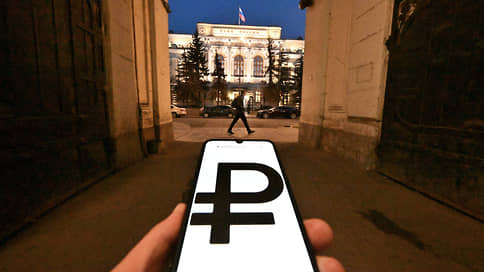The bill on the digital ruble was amended for the second reading
[ad_1]

The latest version of the amendments to the main draft law on the digital ruble was submitted to the departments and market participants for final approval before the second reading. According to the document, instead of digital wallets, there will be digital accounts that foreign banks can also open. At the same time, experts drew attention to the fact that the Bank of Russia was relieved of responsibility for the safety of digital rubles, and banks were obliged to prevent fraudulent attacks on them.
The deputies prepared amendments for the second reading of the main law on the digital ruble (Kommersant got acquainted with them). The document is currently undergoing final approvals with departments and market participants before being submitted to the Council of the State Duma. As one of the authors of the bill, Anatoly Aksakov, head of the State Duma Finance Committee, explained to Kommersant, it is planned that the document will be adopted in the second reading in ten days. According to him, the third reading should take place shortly after the second, so it should be adopted in this session.
The Bank of Russia reported that the bill was finalized for the second reading “taking into account interdepartmental discussion, alignment with the basic legislation and legal technique.”
Experts note that there have been changes in the document: instead of a digital wallet, it was decided to introduce a digital account.
As Anatoly Aksakov noted, this was one of the first amendments to the first text of the law. “The word ‘wallet’ is ideologically inappropriate for the digital ruble,” he said.
The head of the Association of Electronic Money and Money Transfer Market Participants, Viktor Dostov, explained to Kommersant that there are two approaches to regulating the digital ruble. “In the first approach, the digital ruble is considered as a form of non-cash money, and the main regulation is transferred from there,” he points out. In the new law, it was enough to fix the differences – for example, how the responsibility of the Central Bank to the client differs from the responsibility of banks. “At the same time, many issues are resolved automatically, for example, in terms of inheritance or debt collection,” notes Mr. Dostov.
In the second approach, when the digital ruble is considered as a separate form of money stored in digital accounts, almost all regulations need to be written from scratch. “This is a more complex approach, but it can be better adjusted to the specifics of the digital ruble, and legislators in general decided to go closer to the second path,” says Viktor Dostov. In addition, Mikhail Uspensky, a member of the expert council of the working group on the legislative regulation of cryptocurrencies of the State Duma, noted that the passage about the fact that the digital ruble is not a digital currency should be removed from the bill.
A Kommersant source in the banking market drew attention to the fact that the new version of the bill clearly defines the functions of the platform operator, participants and users.
“What was previously mentioned was explicitly fixed, but was not spelled out: you can’t credit an account with digital rubles and charge interest,” he said. In addition, the opportunity has been added for foreign banks to become participants in the digital ruble platform and, accordingly, open accounts, including for non-resident users.
“The current amendments take into account the further development of the platform’s functionality, including cross-border interaction,” the Central Bank explained. Victor Dostov believes that this is necessary “in order for foreign banks to make cross-payments between the digital currencies of the central banks of different countries through an approximate analogue of correspondent accounts.”
Market participants also drew attention to the fact that the provision was removed from the document, according to which the platform operator, which is the Bank of Russia, “is responsible for the safety of digital rubles, the correctness of accounting for information on transactions with digital rubles.”
Instead, the platform operator is obliged to ensure the accounting and storage of information about the balances on such accounts and completed transactions with digital rubles. At the same time, a platform participant, that is, a commercial bank, will be “obliged to implement measures to counter the implementation of money transfers without the voluntary consent of the client.”
As a source in the banking market explained to Kommersant, in the case of ordinary non-cash funds that are in bank accounts, the bank’s responsibility for countering fraudsters is logical: “How to do this in the case of digital rubles that are on an account with the Central Bank, and the bank can’t even see all the transactions on this account, it’s not clear yet.”
[ad_2]
Source link





